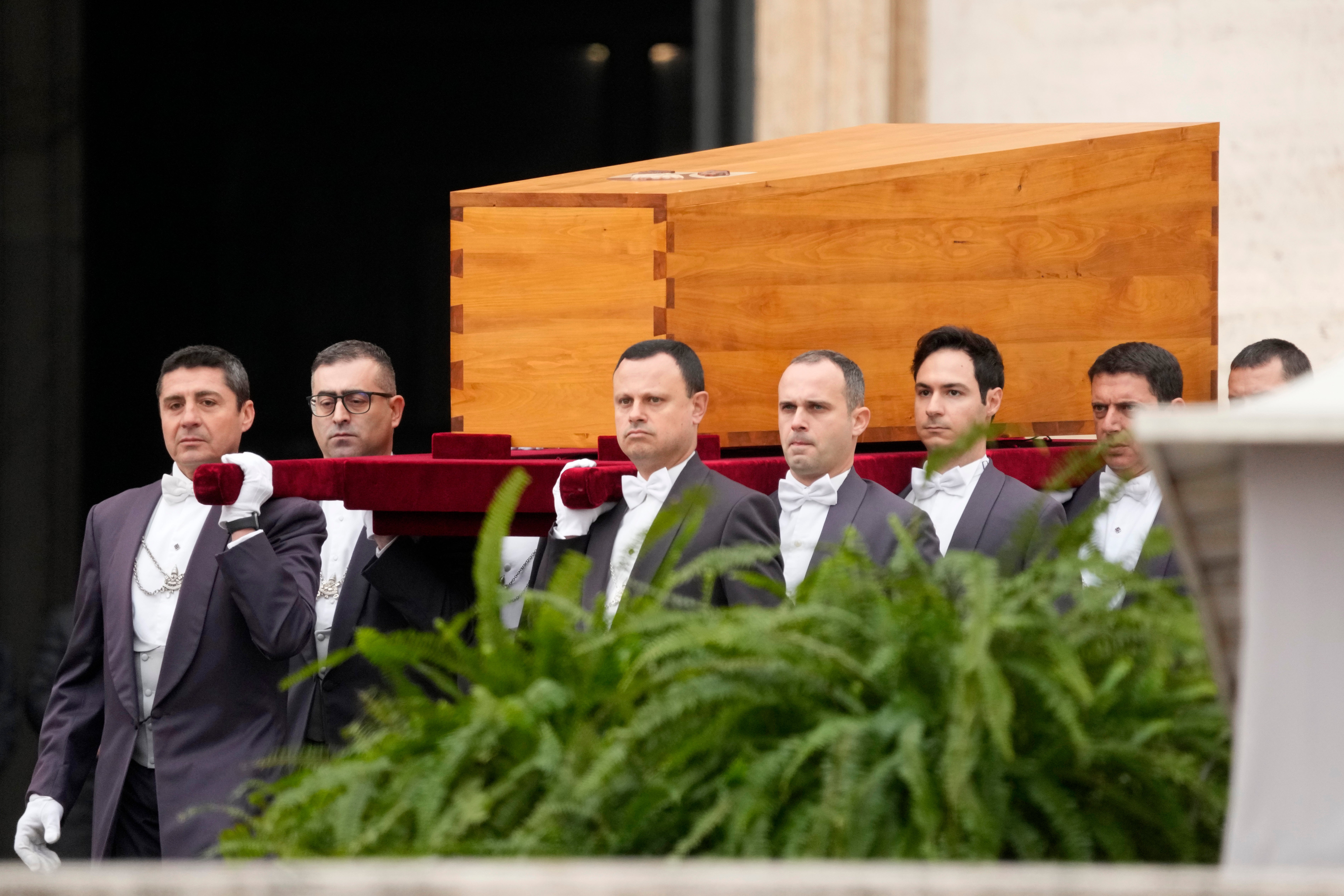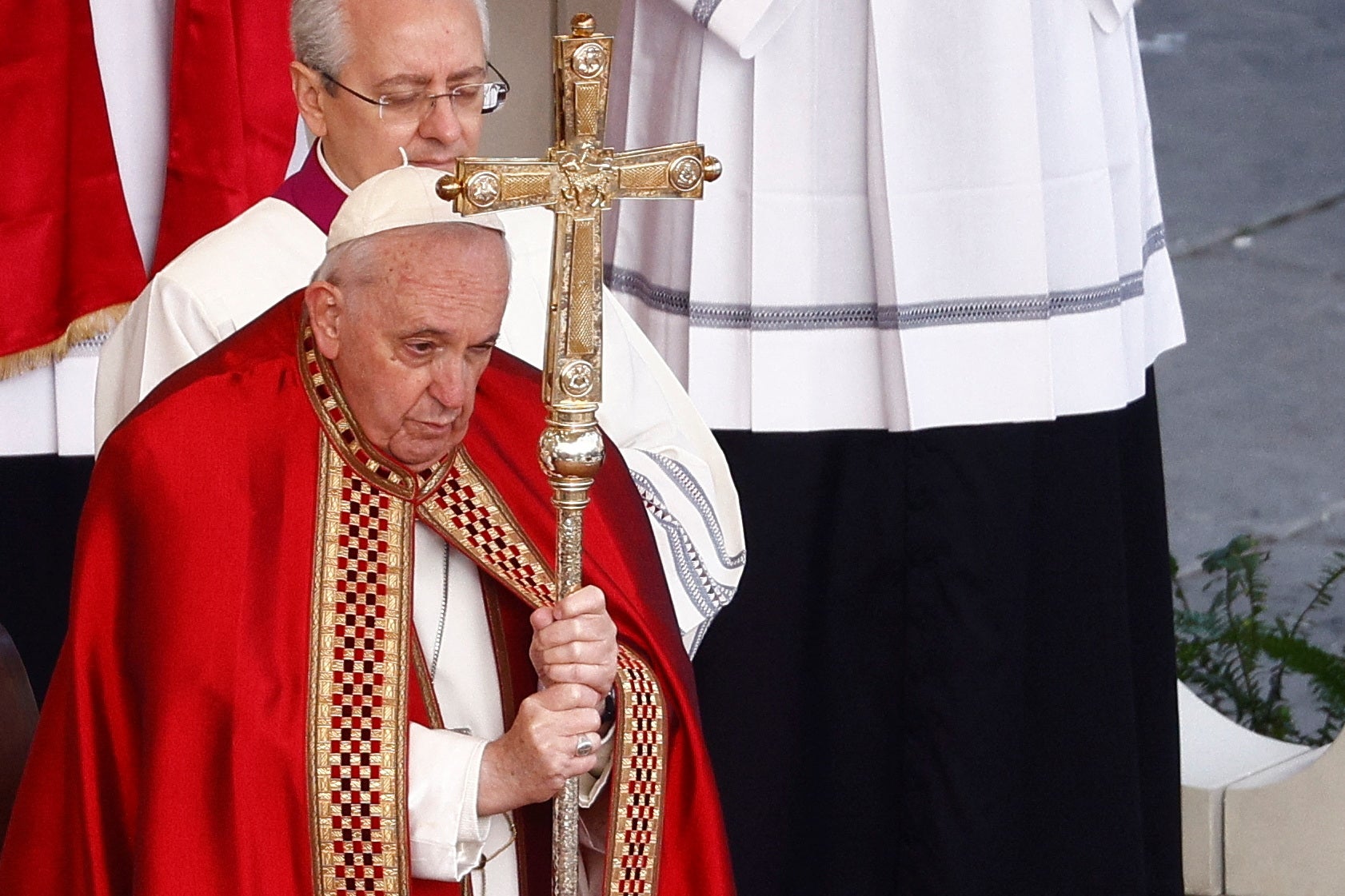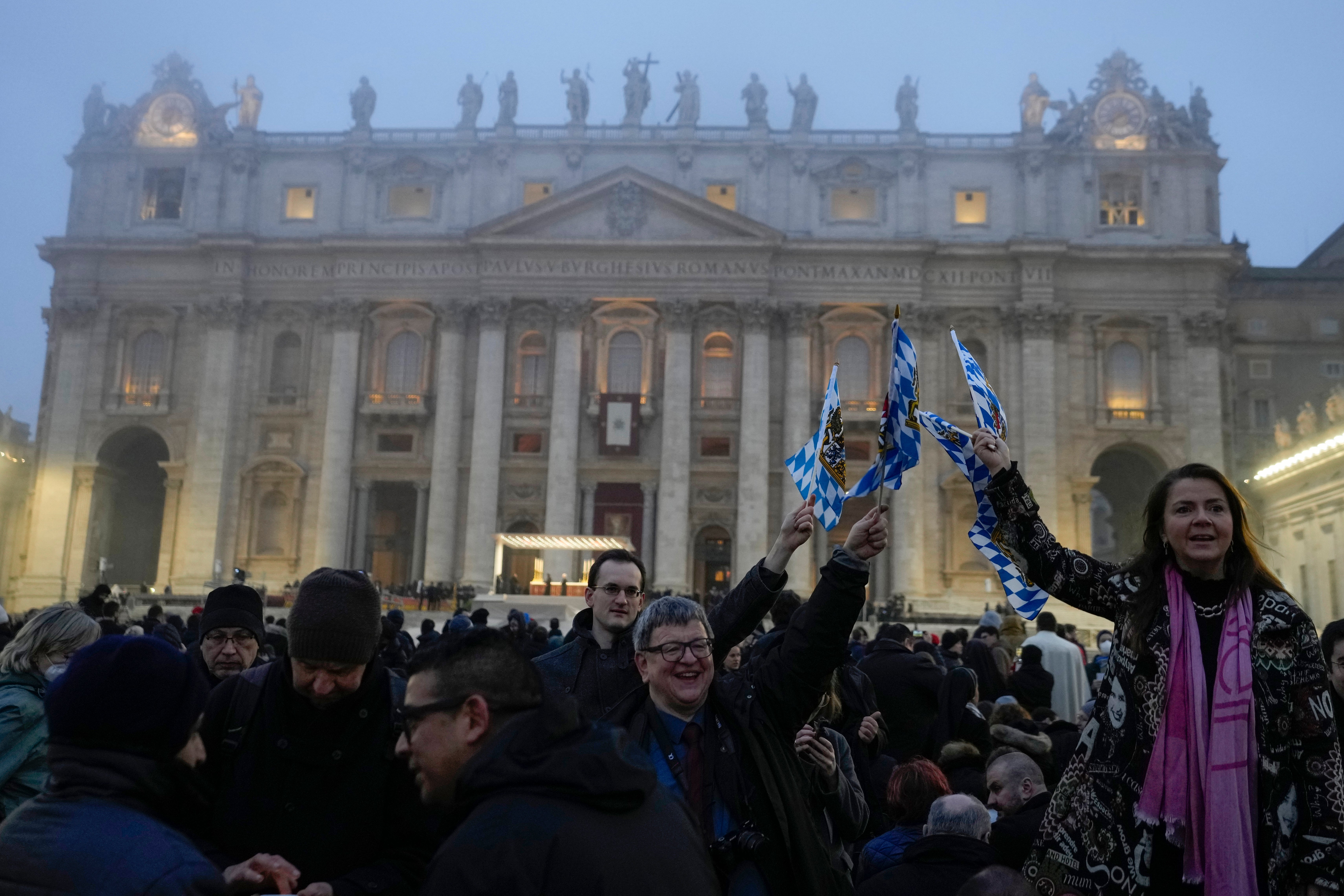Pope Francis leads funeral of Benedict XVI as tens of thousands gather at Vatican
At his request, Benedict’s coffin is buried in the underground Vatican grottoes

Tens of thousands of mourners gathered at St Peter’s Square in Vatican City to watch Pope Francis deliver a rare requiem mass for his predecessor, Benedict XVI, during the former pontiff’s funeral.
Benedict passed away aged 95 on 31 December, nearly a decade after he became the first head of the Catholic Church in six centuries to step down from the role.
Large crowds of people began arriving for the funeral as early as 0400 local time [0300 GMT], following three days of remembrance in St Peter’s Square, during which around 200,000 people paid their respects to the former pontiff in what the Vatican described as “the greeting of the faithful”. Police estimated that between 60,000 and 100,000 would visit St Peter’s Square to attend the funeral.
Suffering a sore knee, Pope Francis, who previously described Benedict as a gift to the church, arrived at the two-hour mass in a wheelchair as choirs sang in Latin. It is extremely rare for a living pope to bury his predecessor, particularly given that Benedict was the first pope to resign since Gregory XII stepped down from the role in 1415. In 1802, Pope Pius VII presided over the funeral of Pius VI, who had died in exile in France in 1799 as a prisoner of Napoleon.
In his homily Francis, 86, – a year older than Benedict when he retired – used more than a dozen biblical references and church writings in which he appeared to compare Benedict to Jesus, including his last words before he died on the cross: “Father, into your hands I commend my spirit.”
During the mass celebrated by 125 cardinals, 200 bishops and about 3,700 priests, Francis spoke of the “wisdom, tenderness and devotion that he bestowed upon us over the years”.

Francis mentioned Benedict by name only once, in the last line, saying: “Benedict, faithful friend of the Bridegroom, (Jesus) may your joy be complete as you hear his voice, now and forever!”
Having sat while delivering the homily, the pope rose at the end as Benedict’s coffin was being carried away for a private burial inside St Peter's Basilica. Bowing his head in silent prayer, Francis briefly touched the casket.
At the end of the funeral some people shouted in Italian “Santo Subito!” (Make him a saint now!). It was the same phrase used at the funeral of Pope John Paul II in 2005, although by many more people then.
More than 1,000 Italian security personnel were called up to help safeguard the event, and airspace around the tiny Holy See has been closed off for the day. Italy ordered that flags around the country be flown at half staff.
Those attending the funeral included Germans in traditional Bavarian outfits carrying flags and standards of the area of Germany where Benedict was born.
Benedict, a world renowned theologian, died in a monastery within the Vatican gardens, where he moved after becoming the first pontiff in 600 years to stand down, opening the way for the election of Pope Francis, who has proved a more reformist, hands-on leader.
“Even though at our age we were just children when he was pope, he left his mark,” Xavier Mora, 24, a Spaniard who is studying for the priesthood in Rome, said.
“We have been studying his theology for three years and even though we did not know him personally we have great affection and esteem for him,” he said.
The lying-in-state ended on Wednesday evening and the body was put into a plain cypress wood coffin ready for the funeral. A one-page account of Benedict’s papacy, along with other items, including Vatican coins minted during his reign, were also tucked into the coffin.

The three-page account of his life and papacy, written in Latin, says he “fought with firmness” against sexual abuse by clergy in the church. While many leading figures have praised Benedict since his death, criticism has also been aired, including by victims of clergy sexual abuse, who have accused him of seeking to protect the church at all costs.
After the funeral service, the coffin was wrapped in red ribbons in the form of a cross. Workers later put it in a zinc casket and soldered that shut. Both were then put into a wooden casket, which was lowered into a crypt.
Because Benedict was no longer a head of state when he died, only two countries, Italy and his native Germany, sent official delegations on Thursday.
Other leaders, including the king and queen of Belgium, and about 13 heads of state or government, attended in a private capacity. Most nations were being represented by their ambassadors to the Holy See.
It is a far cry from the last papal funeral in 2005, when dozens of kings, presidents and prime ministers joined more than a million people who flooded the streets around the Vatican to pay their respects to Benedict’s charismatic predecessor, John Paul II.
Benedict was always likely to rule in the shadow of John Paul. But his time in charge was to a degree spent trying to overcome problems the church had ignored or covered up in previous decades, including rampant sexual abuses by clerics.

Benedict himself acknowledged he was a weak administrator, and after eight years in the job he stunned the world’s 1.3 billion Catholics in 2013 by resigning, saying he was no longer strong enough to lead the Church due to his “advanced age”.
Francis himself has made clear that he would not hesitate to step down some day if his mental or physical health prevented him from carrying out his duties, but Vatican officials always doubted he could do this while Benedict was still alive.
Even though Benedict largely avoided public appearances in subsequent years, he remained a standard-bearer for Catholic conservatives, who felt alienated by reforms ushered in by Francis, including cracking down on the old Latin mass.
At his request, Benedict was buried in the underground Vatican grottoes in the niche where first Pope John XXIII and then John Paul II were interred before their remains were transferred to more prominent places in the basilica above.
"It is a sad but meaningful day. I wanted to be here so much that I can feel it in my heart," said an Italian woman who gave only her first name, Marianna.
Dorotea Dadaeki, a Rwandan woman living in Rome, said she took time out of her busy day to attend the funeral. “I told myself that I had to come and attend holy Mass to accompany him in prayer,” she said.
Reuters contributed to this report






Join our commenting forum
Join thought-provoking conversations, follow other Independent readers and see their replies
Comments